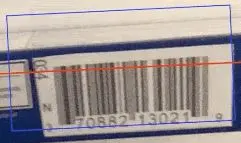klonopin clonazepam 2 mg
INDICATIONS AND USAGE Seizure Disorders Klonopin is useful alone or as an adjunct in the treatment of the Lennox-Gastaut syndrome (petit mal variant), akinetic, and myoclonic seizures. In patients with absence seizures (petit mal) who have failed to respond to succinimides, Klonopin may be useful. Some loss of effect may occur during the course of clonazepam treatment (see PRECAUTIONS: Loss of Effect ). Panic Disorder Klonopin is indicated for the treatment of panic disorder, with or without agoraphobia, as defined in DSM-V. Panic disorder is characterized by the occurrence of unexpected panic attacks and associated concern about having additional attacks, worry about the implications or consequences of the attacks, and/or a significant change in behavior related to the attacks. The efficacy of Klonopin was established in two 6- to 9-week trials in panic disorder patients whose diagnoses corresponded to the DSM-IIIR category of panic disorder (see CLINICAL PHARMACOLOGY: Clinical Trials ). Panic disorder (DSM-V) is characterized by recurrent unexpected panic attacks, i.e., a discrete period of intense fear or discomfort in which four (or more) of the following symptoms develop abruptly and reach a peak within 10 minutes: (1) palpitations, pounding heart or accelerated heart rate; (2) sweating; (3) trembling or shaking; (4) sensations of shortness of breath or smothering; (5) feeling of choking; (6) chest pain or discomfort; (7) nausea or abdominal distress; (8) feeling dizzy, unsteady, lightheaded or faint; (9) derealization (feelings of unreality) or depersonalization (being detached from oneself); (10) fear of losing control; (11) fear of dying; (12) paresthesias (numbness or tingling sensations); (13) chills or hot flushes. The effectiveness of Klonopin in long-term use, that is, for more than 9 weeks, has not been systematically studied in controlled clinical trials. The physician who elects to use Klonopin for extended periods should periodically reevaluate the long-term usefulness of the drug for the individual patient (see DOSAGE AND ADMINISTRATION ).
h2-pharma, llc
DISCLAIMER:
"This tool does not provide medical advice, and is for informational and educational purposes only, and is not a substitute for professional medical advice, treatment or diagnosis. Call your doctor to receive medical advice. If you think you may have a medical emergency, please dial 911."
"Do not rely on openFDA to make decisions regarding medical care. While we make every effort to ensure that data is accurate, you should assume all results are unvalidated. We may limit or otherwise restrict your access to the API in line with our Terms of Service."
"This product uses publicly available data from the U.S. National Library of Medicine (NLM), National Institutes of Health, Department of Health and Human Services; NLM is not responsible for the product and does not endorse or recommend this or any other product."
PillSync may earn a commission via links on our site







HOW SUPPLIED Klonopin tablets are available as scored tablets with a K-shaped perforation—0.5 mg, orange (NDC 61269-605-10); and unscored tablets with a K-shaped perforation—1 mg, blue (NDC 61269-610-10); 2 mg, white (NDC 61269-620-10)—bottles of 100. Imprint on tablets: 0.5 mg — 1/2 KLONOPIN (front) No imprint (scored side) 1 mg — 1 KLONOPIN (front) No imprint (reverse side) 2 mg — 2 KLONOPIN (front) No imprint (reverse side) Figure Figure Figure Store at 25°C (77°F); excursions permitted to 15° to 30°C (59° to 86°F).
More pills like ROUND 2 KLONOPIN